Olesya Khromeychuk is a historian of 20th century East-Central Europe, specialising in Ukrainian history. She has a PhD in History from University College London. Olesya has previously taught at King’s College London, the University of East Anglia, University College London and the University of Cambridge. She also runs a theatre company, Molodyi Teatr London, that stages documentary pieces exploring urgent social and political themes. Originally from Lviv, Olesya moved to the UK in 2000, since when she has been actively engaged in the life of the Ukrainian community in London and beyond. She is the author of ‘Undetermined’ Ukrainians. Post-War Narratives of the Waffen SS ‘Galicia’ Division (Oxford: Peter Lang, 2013) and A Loss. The Story of a Dead Soldier Told by His Sister (Stuttgart: ibidem, 2021). For more information visit www.olesyakhromeychuk.com.
Maria Montague is a cultural manager with a keen interest in Ukraine. She studied Ukrainian literature as part of her BA in languages at the University of Cambridge, and went on to do an MPhil at Cambridge, researching the Ukrainian theatre director Les Kurbas. Maria has worked on various theatre projects, including the English-language premiere of Maklena Grasa by Mykola Kulish, which had a UK tour in 2018, funded by Arts Council England. Maria was the translator and director of this production, which she staged with the theatre company she co-founded, Night Train. Maria also has research and project management experience in international relations. She previously worked with the Chatham House Ukraine Forum, and since 2019 she has been working with the LSE Arena programme, which is dedicated to analysing and overcoming polarization and disinformation.
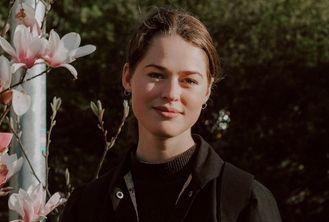
Phoebe studied Ukrainian literature and culture at the University of Cambridge as part of her BA in Modern Languages. She recently participated in the Ukrainian Institute London’s writing residency Ukraine Lab, which tackled global themes through the prism of Ukraine. Phoebe is currently a Master's student in Political Sociology at UCL’s School of Slavonic and Eastern European Studies, focusing on Ukraine. She is interested in security and the role of culture and soft power in the context not only of malign influence but also as counter offensive and resistance to hybrid aggression.
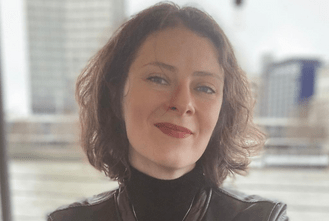
Sasha Dovzhyk is the curator of UKRAINE LAB and editor of the London Ukrainian Review. She has gained a PhD in English and Comparative Literature from Birkbeck, taught in academia and beyond, and published in peer-reviewed journals such as British Art Studies and Modernist Cultures. As a research fellow, she is affiliated with Birkbeck and Goldsmiths, University of London. Sasha has also written for non-academic publications, including The Ecologist, Hong Kong Review of Books, and Los Angeles Review of Books, on topics as diverse as the legacies of Chornobyl, food waste, and transnational decadent aesthetics. She has built and keeps running the Aubrey Beardsley Society.
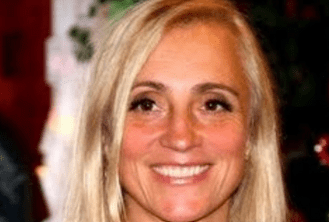
Constance Uzwyshyn specialises in Ukrainian contemporary art and spatial interior design. Constance is originally from Canada and studied archaeology in Italy and sculpture at Accademia di Belle Arti in Florence. Thereafter, she was a postgraduate student at Edinburgh University and researched Oleksandra Ekster’s oeuvre. In 1990, Constance moved to Ukraine. She organised the first art auction in Ukraine (1993, fundraiser for the State Museum of Ukrainian Art), founded and directed Great Ukrainian Women Artist juried art exhibition (1995 Ukrainian House; 1996 Ukrainian National Museum; 1997, 1997 Lavra Gallery). In 1998, she opened the first commercial gallery in Ukraine – ARTEast Gallery and was awarded by American Chamber of Commerce of Ukraine Best Art Gallery. In 2004, ARTEast Gallery closed, and Constance moved to United Kingdom and studied spatial interior design at Chelsea College of Art. She is the winner of BBC One, Best House in Town. In 2021, she completed MA in Art Business from Kingston University London and has a key interest in Art and Law. She is the Art Industry Specialist for the Cambridge Journal of Issues in Law, Politics, and Art. Constance is currently a PhD candidate at Cambridge University, conducting research into the impact of war on Ukrainian contemporary art.
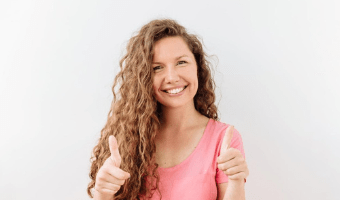
My native city is Chernihiv. For the past 20 years I lived in Kyiv, where I taught English. I am currently based in London, and I'm honoured to be managing the Ukrainian Institute London's English school for displaced Ukrainians.
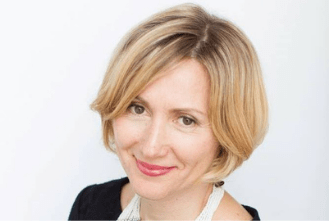
Marina Pesenti was the director of the Ukrainian Institute London in 2015-2020, overseeing a significant growth and expansion of the Institute and its activities. Marina has 20 years of professional experience, covering media, public affairs, conference producing and cultural management. She spent 10 years with the BBC World Service in London, producing and presenting programmes in Ukrainian and English. Marina has done analytical research for think tanks, such as Legatum Institute in London, Kennan Institute in Kyiv. Her most recent piece of research, "Cultural Revival and Social Transformation in Ukraine," was published by Chatham House in 2020. Marina contributes to British and Ukrainian media: her pieces appeared in "The World Today," Atlantic Council, Novoye Vremya, Kyiv Post. She is originally from Kyiv, holds a BA degree in cultural studies from the Kyiv-Mohyla Academy and an MSc degree in European Political Economy from the London School of Economics.
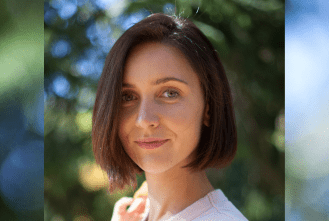
Olga Sydorushkina is a Ukrainian cultural manager with 15 years of experience in managing cultural projects in Ukraine, both local and international. She worked as a coordinator and selector at the Odesa International Film Festival, and curated the film department at the Green Theatre (Odesa). Olga worked for over two years in the development of international projects at the Museum of Modern Art in Odesa. She is also the CEO and co-founder of the festival of contemporary culture PORUCH (Odesa). Olga is currently based in London, working at The Garden Cinema and continuing to develop PORUCH. Olga has joined the Ukrainian Institute London’s team as Film Festival Fellow, June-September 2023, as part of the UIL's fellowship scheme for displaced Ukrainiains.
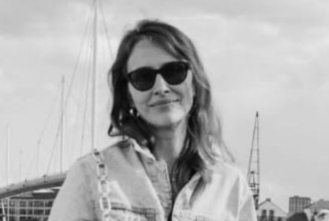
Sofiia has a background in strategic planning in local government, and has developed a keen interest in culture as a key factor of transformation within a society and a means to convey messages to the outer world. Born in Soviet Union, raised and educated in Ukraine, Sofiia's career to date has been focussed on Ukraine's development, maximising on the country's rich resources, shaking off Soviet bureaucracy and rejuvenating Ukrainian institutions. Sofiia completed a master’s degree in public administration as a Fulbright scholar, completed multiple educational programmes in Ukraine and abroad and has gained a wide range of experience in working with international organisations that provide technical assistance to so-called developing countries. Sofiia will join the Ukrainian Institute London’s team as Events Fellow, August-October 2023, as part of the UIL's fellowship scheme for displaced Ukrainiains.